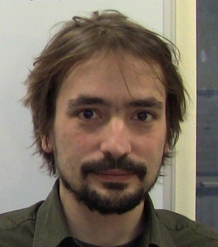
Dr Jean-Francois Mercure
Associate Professor in Climate Change Policy
J.Mercure@exeter.ac.uk
Laver Building 801d
Laver Building, University of Exeter, North Park Road, Exeter, EX4 4QE, UK
Overview
Senior Climate Economist
Vice Presidency for Equitable Growth, Finance and Institutions, World Bank, Washington DC
Associate Professor in Climate Policy
Global Systems Institute, Department of Geography, University of Exeter
Research Fellow
Cambridge Centre for Energy, Environment and Natural Resource Governance (C-EENRG),
Department of Land Economy, University of Cambridge;
https://www.ceenrg.landecon.cam.ac.uk/people/dr-jean-francois-mercure
Career
Assistant Professor in Energy, Climate and Innovation
Radboud University, Nijmegen,
The Netherlands (2016-2018)
Deputy Director (Senior Research Associate)
Cambridge Centre for Climate Change Mitigation Research
University of Cambridge,
Cambridge, UK (2013-2015)
Research
Research interests
I am currently seconded to the World Bank on a 4 year term. I am in charge of developing new generation energy, innovation and macroeconomic models for the economic analysis of climate change and climate policy at the World Bank. I plan to fully return to my academic position in Exeter in 2026, but remain highly engaged with the Global Systems Institute.
I am an innovation scholar, macroeconomist and complexity scientist. My research is on modelling innovation, the macroeconomic impacts of low-carbon innovation and technological change policy, the diffusion of innovations, and modelling the global energy-economy-environment system. However, I also research climate policy and environmental governance from a social science viewpoint. I contributed substantially to the design of the integrated assessment model E3ME-FTT-GENIE, which is used notably for policy analysis at the European Commission and various other governments and stakeholders. I recently led a study on the macroeconomic impacts of stranded fossil fuel assets that attracted substantial attention in British media and beyond. I also contributed work on the role of science and models in the policy cycle for low-carbon innovation.
My theoretical focus stems from the application of complexity theory in innovation systems and macroeconomics. The energy-economy-environment system is a complex system that features many feedback interactions that are not fully understood, and this problem becomes even more difficult given that understanding it requires scientists competent in many fields simultaneously (earth system science, macroeconomics, energy systems, finance, sociology, innovation, business, law, dynamical systems...). It is also a 'wicked problem', in that its resolution evolves at the same pace at which we can study it, and each policy intervention changes the problem itself. I often play the role of bridging between disciplines, and interact with policy-makers through the science-policy interface. I additionally bring in my own knowledge of innovation systems, complexity science and macroeconomics.
Research projects
Research projects I lead or participate to include:
EEIST: I developed and was coordinator of the £4.8M 3 year EEIST project funded by the UK's department for Business, Energy and Industrial Strategy (BEIS) and the Children's Investment Fund Foundation (CIFF), with 16 institutions worldwide, on and developing dynamical models to informing climate policy with governments in India, China, Brazil, the UK and the EU. This involves iterative exchange between scientists/economists and policy-makers. Since moving to the World Bank I became strategic advisor to the project.
FRANTIC: a £230k NERC grant to study the impacts on the UK's financial sector of low carbon policy and stranded fossil fuel assets, in collaboration with the Open University, Cambridge University, SOAS and Cambridge Econometrics.
The BRIDGE project: a £600k ESRC grant to study the energy-water-food nexus in Brazil.
NAVIGATE: I am partner in a €8M consortium to improve state-of-the-art integrated assessment models used to study global socio-economic pathways including low-carbon pathways.
I also carry out consultancy work for the European Commission.
I work in close collaboration with partners at Cambridge University, Cambridge Econometrics, the Open University and SOAS.
Research grants
- 2015 ESRC
ESRC-funded project to study the Energy-Water-Food Nexus in Brazil, in collaboration with Cambridge, the Open University, Exeter and Cambridge Econometrics.
Publications
No publications found
Teaching
I created the GEOM144 module about environmental governance, the policy cycle, the science-policy interface, innovation policy, energy modelling, energy and climate change, as part of the MSc on Global Sustainability Solutions. Since moving to the World Bank I handed this module over to Sally Rangecroft.Modules
2023/24
Information not currently available



